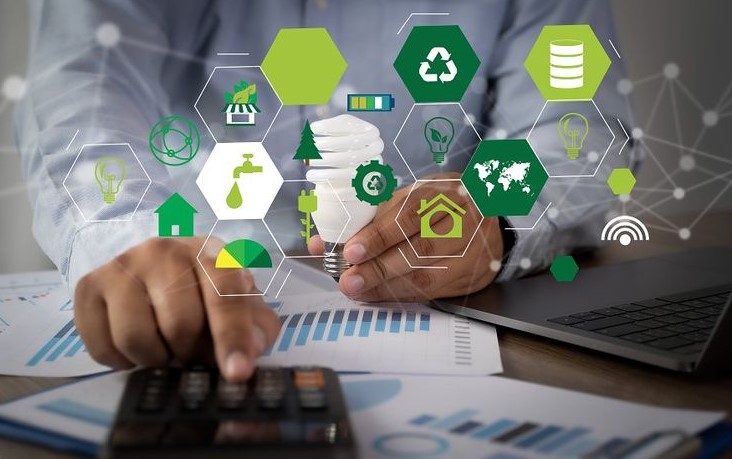Read Time:2 Minute, 18 Second
The future of sustainable business practices is expected to be characterized by increased focus on environmental, social, and economic responsibility. Several trends and developments are likely to shape the landscape of sustainable business in the coming years:
- Circular Economy Adoption: The concept of a circular economy, where products and materials are reused, repaired, and recycled to minimize waste, is gaining traction. Businesses will likely adopt circular practices to reduce their environmental footprint and create more sustainable supply chains.
- Renewable Energy Integration: The transition to renewable energy sources is crucial for sustainable business practices. Companies are expected to invest in renewable energy solutions such as solar, wind, and hydro power to reduce dependence on fossil fuels and decrease their carbon emissions.
- Eco-friendly Packaging: Sustainable packaging solutions, such as biodegradable materials and minimalistic packaging designs, will become more prevalent. Businesses will strive to reduce single-use plastics and adopt packaging that is both environmentally friendly and cost-effective.
- Transparency and Accountability: Stakeholders, including consumers, investors, and employees, are increasingly demanding transparency from businesses regarding their environmental and social impacts. Companies will need to provide clear and accurate information about their sustainability practices and initiatives.
- Social Responsibility: Beyond environmental concerns, companies will place a greater emphasis on social responsibility. This includes fair labor practices, diversity and inclusion initiatives, and community engagement. Consumers are likely to favor businesses that contribute positively to society.
- Technology Integration: Advances in technology, such as the Internet of Things (IoT) and blockchain, will play a significant role in enhancing sustainability efforts. These technologies can improve supply chain transparency, traceability, and efficiency.
- Regulatory Compliance: Governments and international bodies are expected to introduce and enforce stricter regulations related to environmental and social responsibility. Businesses will need to adapt and comply with these regulations, and proactive compliance may even become a competitive advantage.
- Green Innovation and R&D: Companies will increasingly invest in research and development focused on creating innovative and sustainable products and services. This may involve the development of new materials, energy-efficient technologies, and eco-friendly alternatives to traditional products.
- Collaboration and Partnerships: Collaborative efforts between businesses, governments, and non-governmental organizations will become more common. Partnerships can amplify the impact of sustainability initiatives and address complex challenges that individual entities may struggle to tackle alone.
- Employee Engagement: Companies will recognize the importance of employee engagement in sustainable practices. Creating a culture of sustainability within the organization and involving employees in decision-making processes related to sustainability will be essential.
Overall, the future of sustainable business practices will require a holistic approach that considers environmental, social, and economic factors. Businesses that proactively embrace sustainability are likely to enjoy long-term success and positively contribute to global efforts to address pressing challenges, such as climate change and social inequality.
